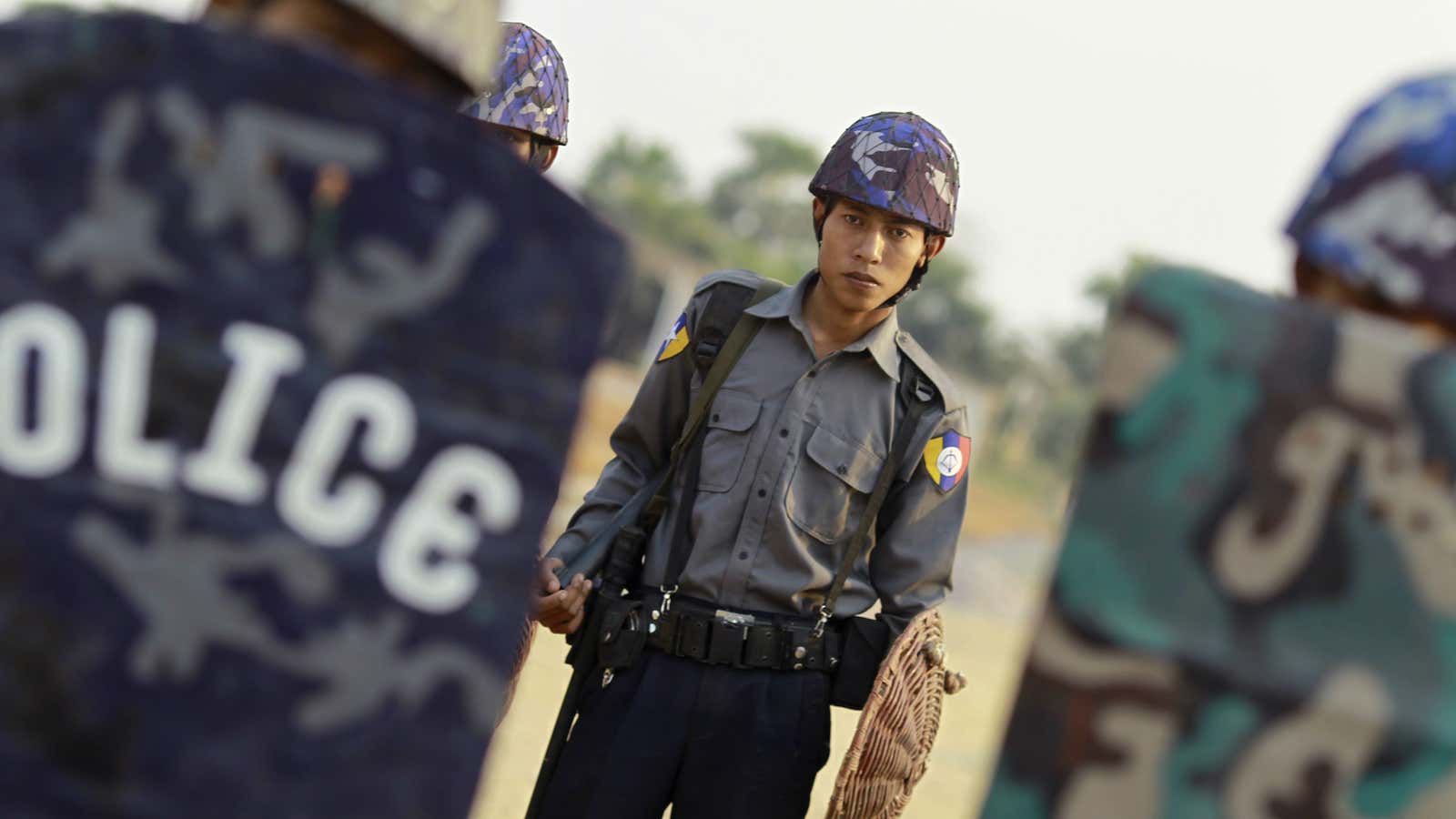If 2012 was Myanmar’s year of tentative opening, 2013 is shaping up to be a year of protests. The latest involves a controversial copper mine project worth $1 billion, which locals and activists have been protesting for months now, even after a brutal crackdown on demonstrators in November 2012. Officials announced this week that the copper mine will resume operation, reports The Irrawaddy, a newspaper based in Bangkok.
The country’s largest copper mine, the Letpadung project was originally a joint venture between Wanbao, a subsidiary of a Chinese weapons-maker, and a holding company backed by Myanmar’s military. Locals objected to it, saying it would create pollution and entail the confiscation of thousands of acres of farmland from more than two-dozen villages. Buddhist monks say that mine development has already destroyed or damaged holy sites. Last November’s crackdown saw police put down a months-long demonstration over these grievances, leaving monks and residents injured. Three protesters are still in prison.
It would appear a hopeful sign of reform that after those protests, the former military regime launched a formal inquiry into the project’s impact. Compromises were made; a new contract was drawn up between the Chinese and the Myanmar sides. Under the new contract, the Myanmar government will have a 51% stake in the mine, reducing the stake held by Wanbao and its partner, the Myanmar holding company, to 49%. Wanbao has also promised to uphold environmental standards and to hire local workers. And 2% of the mine’s net profits are to be spent on health and education in the area.
That might sound pretty good. But some are angered that the public wasn’t involved in drawing up the new contract. “In the past there were problems because they signed the contract without informing the public,” Khin San Hlaing, a lawmaker, according to The Irrawaddy. “Now they have done it again, failing to inform the public.”
This could be a worrying sign. As Myanmar opens up, it will entertain more and more foreign investors looking to harvest its bounty of natural resources—projects that will inevitably affect locals. In addition to the copper mine, this is already proving to be a problem. For instance, Shan State residents are protesting—and rebels have attacked an energy compound—in response to a pipeline project to transport gas and oil from Myanmar to China. Leaders of the budding democracy will have to figure out how to give its people a bigger say in how it develops its economy.
On the other hand, the new copper mine contract shows the Myanmar government exerting far more control over the environmental, social and financial terms of the extraction business than the military junta did. And if Wanbao and its Burmese partner are indeed held more accountable for their new pledges, that will be an important precedent.
Still, that’s a big “if.” So far, local residents say that previous promises by Wanbao to build a school, a hospital, and other community infrastructure projects haven’t materialized.




